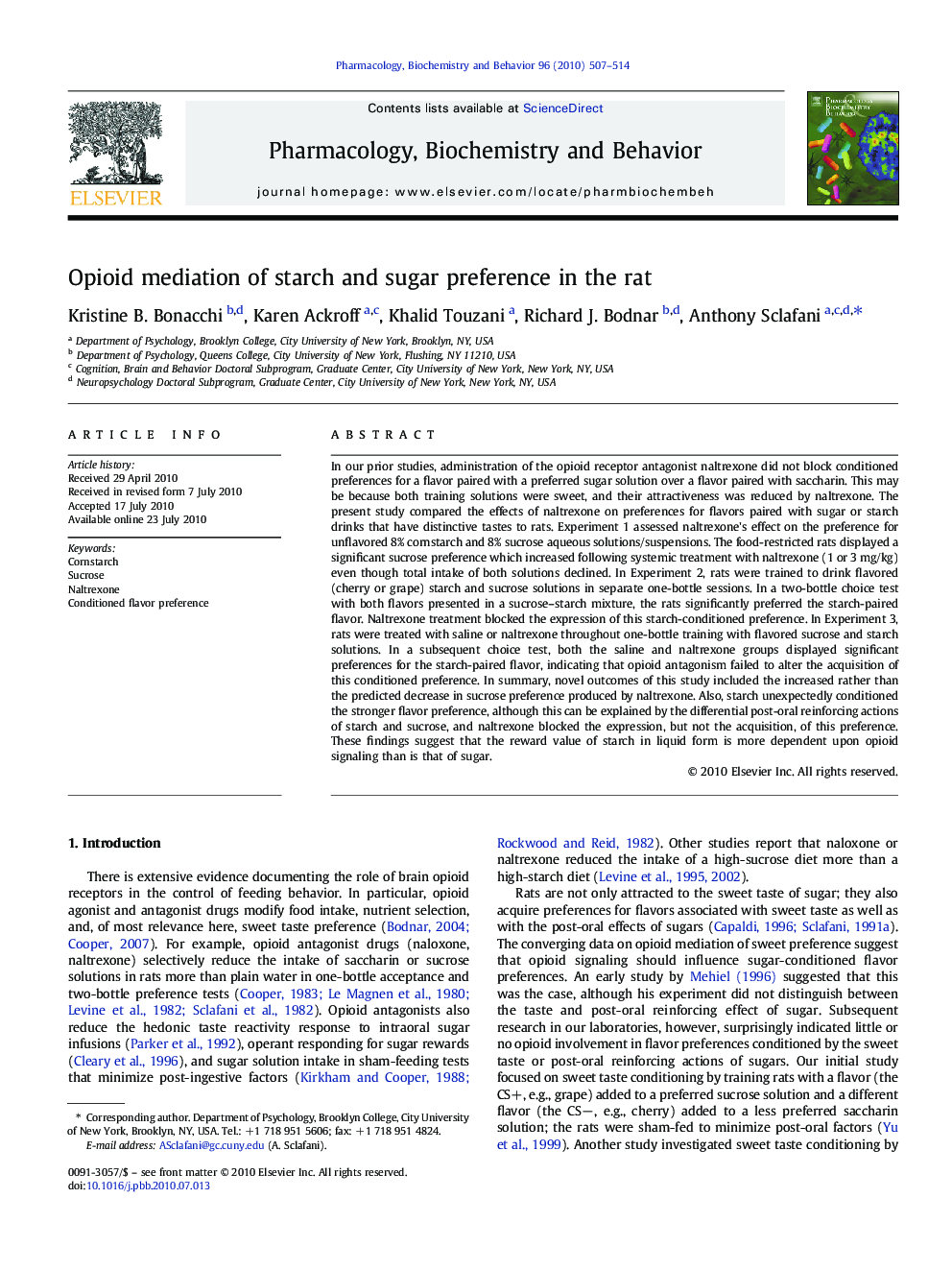| کد مقاله | کد نشریه | سال انتشار | مقاله انگلیسی | نسخه تمام متن |
|---|---|---|---|---|
| 2013380 | 1067110 | 2010 | 8 صفحه PDF | دانلود رایگان |

In our prior studies, administration of the opioid receptor antagonist naltrexone did not block conditioned preferences for a flavor paired with a preferred sugar solution over a flavor paired with saccharin. This may be because both training solutions were sweet, and their attractiveness was reduced by naltrexone. The present study compared the effects of naltrexone on preferences for flavors paired with sugar or starch drinks that have distinctive tastes to rats. Experiment 1 assessed naltrexone's effect on the preference for unflavored 8% cornstarch and 8% sucrose aqueous solutions/suspensions. The food-restricted rats displayed a significant sucrose preference which increased following systemic treatment with naltrexone (1 or 3 mg/kg) even though total intake of both solutions declined. In Experiment 2, rats were trained to drink flavored (cherry or grape) starch and sucrose solutions in separate one-bottle sessions. In a two-bottle choice test with both flavors presented in a sucrose–starch mixture, the rats significantly preferred the starch-paired flavor. Naltrexone treatment blocked the expression of this starch-conditioned preference. In Experiment 3, rats were treated with saline or naltrexone throughout one-bottle training with flavored sucrose and starch solutions. In a subsequent choice test, both the saline and naltrexone groups displayed significant preferences for the starch-paired flavor, indicating that opioid antagonism failed to alter the acquisition of this conditioned preference. In summary, novel outcomes of this study included the increased rather than the predicted decrease in sucrose preference produced by naltrexone. Also, starch unexpectedly conditioned the stronger flavor preference, although this can be explained by the differential post-oral reinforcing actions of starch and sucrose, and naltrexone blocked the expression, but not the acquisition, of this preference. These findings suggest that the reward value of starch in liquid form is more dependent upon opioid signaling than is that of sugar.
Research Highlights
► Food deprived rats displayed a modest but significant preference for a sucrose solution over a starch solution.
► Rats developed a preference for a flavor added to the starch solution over a flavor added to the sucrose solution.
► Treatment with the opioid receptor antagonist naltrexone selectively reduced the preference for starch and the starch-paired flavor relative to sucrose and sucrose-paired flavor.
► The findings suggest that the reward value of starch in liquid form is more dependent upon opioid signaling than is that of sugar.
Journal: Pharmacology Biochemistry and Behavior - Volume 96, Issue 4, October 2010, Pages 507–514